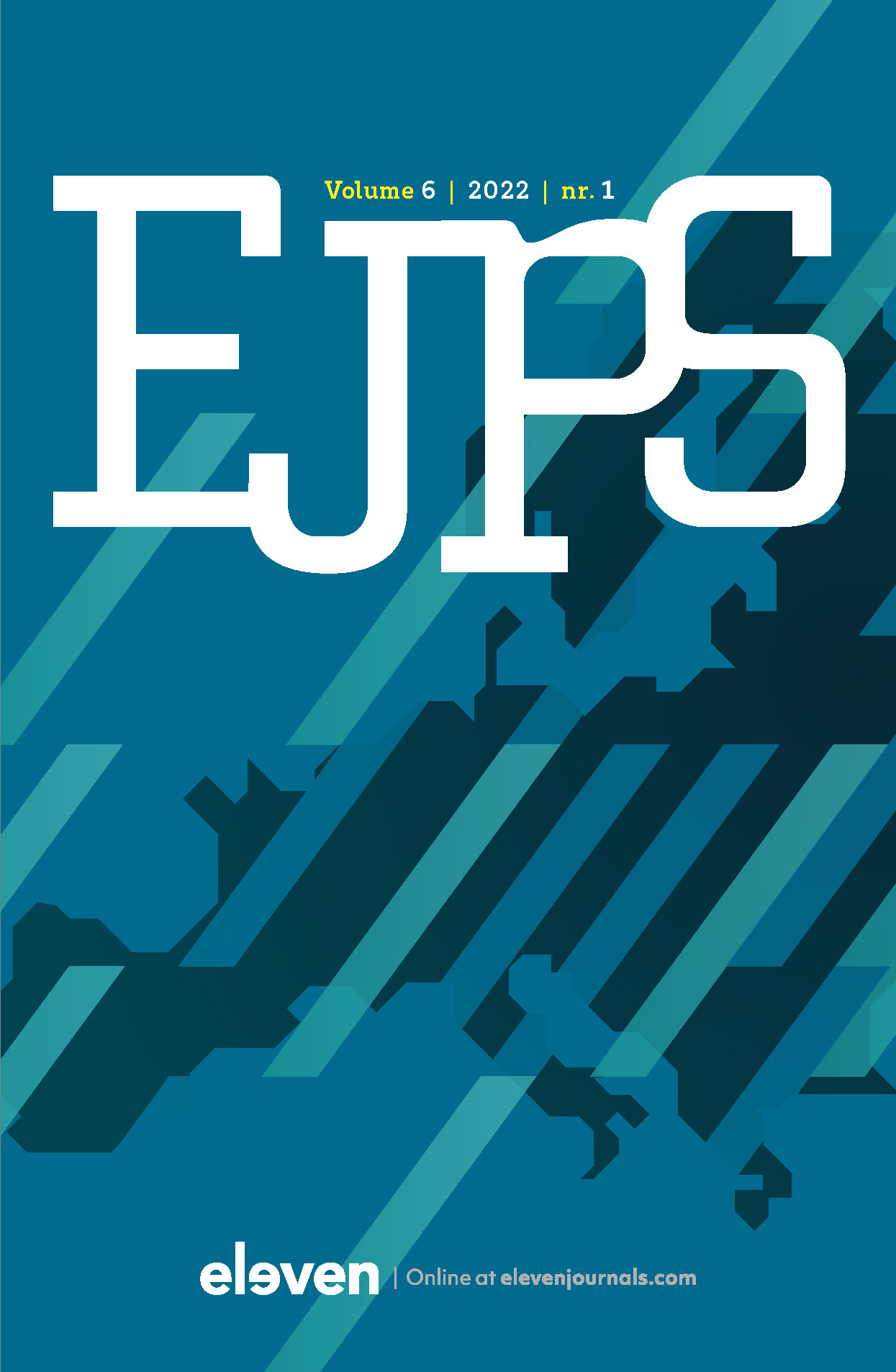|
The article addresses organizational legitimacy in the public services, conducting an analysis of the records of the Office of the Police Ombudsman for Northern Ireland (OPONI) 2000-2018. A framework of organizational legitimacy provides a basis for examining OPONI’s record with respect to fulfilment of purpose, administrative efficiency and outcomes. Results suggest that OPONI needs to adjust to changing societal circumstances in Northern Ireland to sustain its role in persuading the people that policing is both fair and appropriate. A strategic reset is required given the diminished number of complaints cases linked to political conflict in order to avoid inadvertently destabilizing the post-conflict governance of policing. |


European Journal of Policing Studies
About this journalSubscribe to the email alerts for this journal here to receive notifications when a new issue is at your disposal.
| Article |
|
| Keywords | police, oversight, legitimacy, Northern Ireland |
| Authors | Gavin Boyd and Gordon Marnoch |
| AbstractAuthor's information |
| Article |
What Are They Doing in the Dark?Police Strategies and Working Methods in Fighting Crime on the Tor Network |
| Keywords | dark web, tor, ACN, criminal investigation, law enforcement |
| Authors | Bram Emmen, Christianne de Poot and Wouter Stol |
| AbstractAuthor's information |
|
The dark web is creating difficulties for traditional policing. Previous studies have focused on users, but very little is known about law enforcement dealing with the core challenge of Anonymity Communication Networks: absent and anonymous suspects whose locations and identities are effectively hidden behind encryption. Based on 14 interviews with Dutch police officers and public prosecutors, enriched with a media analysis of 45 Dutch newspaper articles, we come to a model of Dutch law enforcement dealing with Tor cases. We observe that the police are adapting to the new reality of Tor use. However, they still work within their set framework which does not always match the needs for policing Tor cases. We additionally note a more prominent place for the strategy of disruption which may create the need for additional legal grounds. |
| Article |
The Qualitative Analysis of the Perceived Abilities, Skills and Characteristics of Turkish Crime Investigators |
| Keywords | police, criminal investigation, investigator, professionalism, strategic management |
| Authors | Burak M. Gönültaş, Ivar Fahsing, Emek Yuce Zeyrek Rios e.a. |
| AbstractAuthor's information |
|
A study combining interviews and the repertory grid analyses explored Turkish investigators’ views on what it takes to be an effective investigator. Experienced Turkish police officers (n = 286) from seven different cities dealing with high-harm, low-volume crime investigations were asked to describe what differentiates the effective investigator from the less effective one. A total of 1,819 skills, abilities and personal characteristics (SACs) described could be clustered under three main categories, namely “personality and general knowledge”, “investigative and analytical abilities” and “management and cooperation skills”. A vast majority of SACs identified were quite unspecific and provided only a general indication of a relatively low ability to describe the deeper and underlying functions involved in the job. They view their job mostly as a form of art which can only be mastered through mentorship and job experience. In this study, the variety and vastness of skills, abilities and characteristic in the data indicate that the investigators seem to acknowledge the complexity and the difficulty of modern-day criminal investigations. Thus, we reached inferences from the findings, and they are discussed in relation to levels of professionalism, strategic staff management and previous research from other cultures and jurisdictions. The findings of this research can assist with the development of a cross-cultural and cross-jurisdictional and evidence-based policy for the selection and development of investigators. |
| Article |
Police Stop and Search Practices in Belgium: Amplifying Voices of Urban Youth Experiencing Stop and Search in Belgium and Exploring the Dynamics of Learned Submissiveness |
| Keywords | Belgium, identity checks, ethnic profiling, discriminatory policing, stop and search, learned submissiveness |
| Authors | Yana Jaspers, Jenneke Christiaens, Jasmien Bougrine e.a. |
| AbstractAuthor's information |
|
Identity checks are controversial in Belgium. Allegations that police have engaged in racial profiling practices have led to protests in some major cities and conflict between the police and young people with minority backgrounds. Academic research into citizens’ experiences with ID checks by the police is both dated and scarce in Belgium. Existing studies show that citizens, especially those of North African origin and Roma heritage, report being both over-policed and treated disrespectfully by the police. This article presents a state of the art about citizens’ experiences with identity checks in Belgium, presents findings of two studies on youngsters’ experiences with stop and search, and casts an analytical eye over the strengths and weaknesses of the extant scholarship. We theorize that repeated exposure to police encounters, where youngsters feel compelled to submit to police authority to expedite the process, results in a state of learned submissiveness (following Seligman’s concept of learned helplessness). This state is characterized by a sense of powerlessness, coerced compliance, and a diminished willingness to challenge police actions. We call for more research into how urban youth perceive the strained relationship with police and its impact on their self-constructed identities. |
| Book Review |
Comparative Policing: An Honest Attempt |
| Authors | Paul F.M. Ponsaers |
| Author's information |


